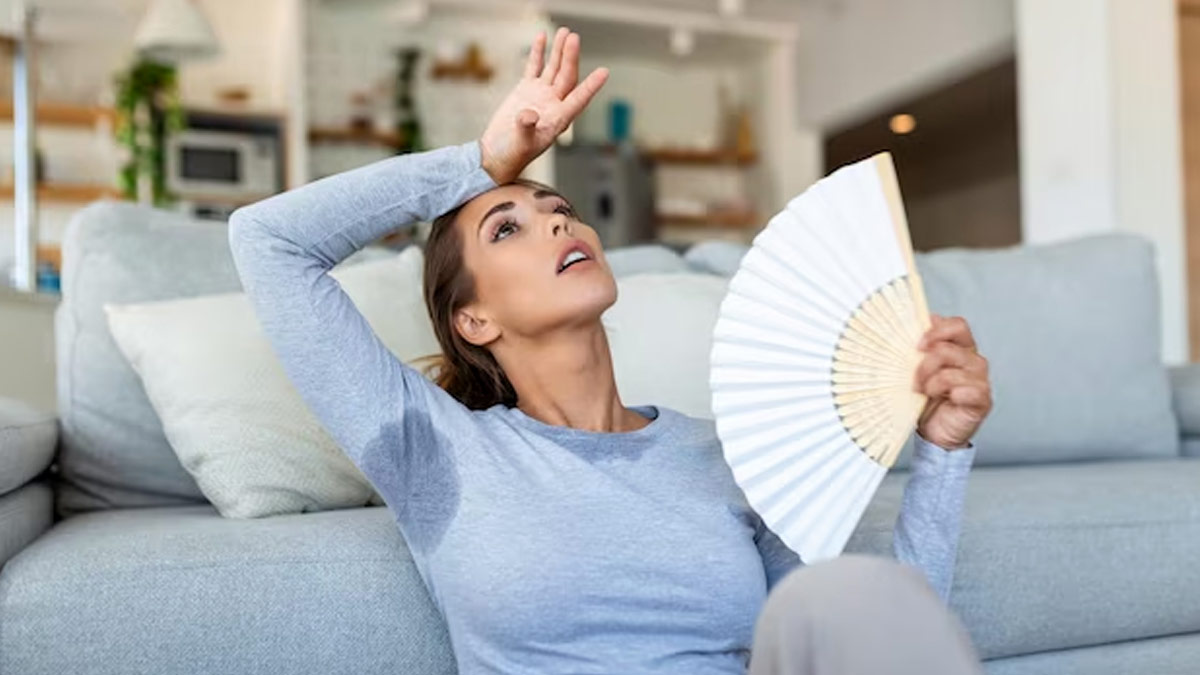
Summer heat can cause many health problems, such as heat stroke, heat exhaustion, and dehydration. But do you that summer heat can also cause your body to fall into hyperthermia? Hyperthermia can range from mild to severe and can have significant implications for human health. To know about how this condition, we spoke to Dr Dilip Nandamuri, Senior Consultant Physician and Diabetologist, Yashoda Hospitals, Hyderabad.
Table of Content:-
What is Hyperthermia?

"Hyperthermia refers to an elevated body temperature that exceeds the normal range. Typically, hyperthermia occurs due to excessive physical exertion in hot and humid environments," said Dr Nandamuri. He added that the normal temperature is 98.6 F and anything above this temperature is called hyperthermia.
Dr Nandamuri said that hyperthermia isn’t the same as a fever. "In cases of hyperthermia, the body temperature surpasses a specific 'set-point' regulated by the hypothalamus, which is a brain component responsible for controlling various bodily functions," he said.
However, during a fever, the hypothalamus actually elevates the body's normal temperature threshold. This deliberate increase in body temperature is the body's way of combating an illness or infection, added the doctor.
Also Read: Can Heat Cause Swelling On Feet And Hands? Here's What The Expert Says
Causes Of Hyperthermia
According to Dr Nandamuri, hyperthermia can be caused by external or internal factors.
External Factors
"External factors include exposure to high temperatures, such as heat waves, hot weather, or being in a hot environment without proper ventilation or hydration," explained Dr Nandamuri.
Internal Factors
"Internal factors include infections, such as heat stroke, heat exhaustion, or fever caused by bacterial or viral infections," added the doctor. He explained that certain medical conditions, such as thyroid or neurological disorders, can also contribute to hyperthermia."
Symptoms Of Hyperthermia
The manifestation of hyperthermia symptoms can differ based on the level of severity of the condition. "Mild cases may present with symptoms like profuse sweating, fatigue, thirst, and flushed skin," explained Dr Nandamuri.
He added, "As the body temperature continues to rise, more severe symptoms can occur, including headache, dizziness, nausea, rapid heartbeat, muscle cramps, and confusion. In severe cases, hyperthermia can lead to seizures, loss of consciousness, organ failure, and even death if not promptly treated."
Also Read: Beat The Heat: Tips To Protect The Seniors From The Raising Heat And Temperature
Treatment Of Hyperthermia
The treatment of hyperthermia depends on the underlying cause and the severity of the condition. Dr Nandamuri said that in cases of mild hyperthermia, self-care measures can be taken, such as moving to a cooler environment, resting, drinking plenty of fluids, and applying cool compresses to the body. It is crucial to avoid alcohol and caffeine as they can contribute to dehydration.
"In cases that are more serious, medical attention may be required. This can include intravenous fluids to rehydrate the body, medications to lower the body temperature, and close monitoring of vital signs. In extreme cases, hospitalisation and intensive care may be required," said Dr Nandamuri.
Prevention Of Hyperthermia

"Prevention is key when it comes to hyperthermia, especially during hot weather or in high-risk environments," said Dr Nandamuri.
Here are some doctor-recommended preventive measures to consider:
- Stay hydrated: Drink plenty of fluids, especially water, to maintain adequate hydration.
- Avoid excessive physical activity during hot weather: If you need to be active, do it during cooler times of the day.
- Dress appropriately: Wear lightweight, loose-fitting clothing, and use hats and sunglasses to protect yourself from the sun.
- Seek shade or air-conditioned environments: Avoid prolonged exposure to the sun or hot environments without proper ventilation.
- Check on vulnerable individuals: Elderly people, infants, and those with chronic illnesses like asthma, are more susceptible to hyperthermia. Ensure they have access to a cool environment and are adequately hydrated.
- Be aware of medication side effects: Some medications can impair the body's ability to regulate temperature. Consult with a healthcare professional if you have concerns about your medication's potential effects.
Conclusion
Hyperthermia is an abnormal increase in body temperature that can have serious consequences if left untreated. It can result from various causes and may present with a range of symptoms. Prompt recognition and appropriate treatment are crucial in managing hyperthermia. By taking preventive measures and staying vigilant, individuals can reduce their risk of developing this condition and promote their overall well-being, particularly during periods of high heat or in hot environments.
[Disclaimer: The information in this article is provided by a registered medical practitioner. However, we recommend you consult your healthcare provider for a thorough diagnosis and treatment.]
Also watch this video
How we keep this article up to date:
We work with experts and keep a close eye on the latest in health and wellness. Whenever there is a new research or helpful information, we update our articles with accurate and useful advice.
Current Version